Self concept is the image that you have of yourself.
How do you perceive yourself? What do you believe about yourself? How do you mentally view yourself as a person?
These questions are the foundation of your self concept.
3 Parts of Your Self Concept
Carl Rogers, a humanist psychologist, theorized that there are three different parts of your self concept or ways that your self concept is acted out:
- Self-Image: Your self-image is a combination of many different attributes including your physical characteristics, personality traits, and how you act in social roles. It’s important to note that many times your self-image doesn’t line up with reality. You might have an inflated view of your self-image or, on the flip side, you can only see the flaws and weaknesses in yourself.
- Self-Esteem: How much do you value yourself? This is self-esteem. There are a number of “recipes” that drive our self-esteem both positively or negatively. How you compare yourself to others and how others respond to you are big ingredients.
- Ideal Self: What you wish or envision yourself to be. For so many of you, how you see yourself and how you would like to see yourself do not match up. This is where my work begins most of the time.
Getting to the Root of Your Belief Systems
When I start working with clients, the first step of exploration that we do together is understanding where they’re at right now.
What’s familiar and what’s comfortable to them right now?
How do they describe their self concept and self image?
More often than not, this includes identities that are dominated by:
- Chronic anxiety
- Multi-layers of depression
- Being overweight and uncomfortable in their own skin
- Living with a chronic health-related disease
Inevitably, these dominating issues greatly impact their self concept and the daily behaviors that they participate in. Emotional eating, prescription pill consumption, impulsive behaviors like drinking or spending money.
Over and over, every day, they are re-telling themselves certain events that confirm their beliefs about their self concept. This repetitive, toxic behavior forms a fixed image of themselves and makes them hold onto it tightly, as if their very existence depended on it. They now categorize themselves dominantly as: the depressed person, the anxious person, the fat person, etc.
Therefore, it’s my job to help them get to the root of these belief systems.
Why do they feel a certain way about themselves that leads to these identities?
What is getting in their way to believe and achieve self love and wellbeing?
The behaviors that you choose to do every day validate your self concept. It’s up to you if you choose to focus on habits and rituals that will keep you stagnant in a negative self concept OR learn to practice new behaviors that align with who you want to become.
Sustainable Behaviors to Make Long-Term Change
Our culture and society has (unfortunately) attached our self concept, self worth, and self esteem to the opinions and reactions of other people. What your work colleagues think of your performance, how your family responds to you when you ask for help, the criticisms that your husband or wife say to you, how your children respond or act around you…these are examples of some big relationship circumstances in which your self concept is formed.
Whatever the outcome may be in these situations, it’s a societal norm to change our needs and beliefs based on other people in our lives.
It’s time to reposition your self concept away from what other people expect of you and toward a focus on who you want to become.
How do you do that?
First, it’s moving away from trying to achieve certain goals to drive your behavior. Things like losing 15 pounds, getting the next promotion within 3 months, or spend 3 nights a week with my spouse doing what they want.
Instead, you will use an identity-based model to create and keep to habits that will improve your health and wellbeing.
Developing a system based on how you identify your self concept can be a much more sustainable and more powerful way to improve your life than setting goals. Research has found two shortcomings of reaching for goals: a loss of inspiration once the goals are met and a lack of fulfillment before they are reached.
Focusing on day-to-day behaviors is the sustainable path to long-term change in who you want to become.
I’m not saying that you shouldn’t have goals in life! But making that the center of your self-worth is most of the time unsuccessful. Instead, you start with listing what you want your core desired feeling to be for your life.
For my clients, some core desired feelings have been: calm, sane, peaceful, light, satisfied, and more.
Then we work together to define the habits, rituals, or behaviors that they see a person with this core feeling doing every day. Examples include getting 8 hours of sleep every night, doing 5 minute breathing exercises every day, walking for 10 minutes a day, and more depending on the chosen core desired feeling. This is the list where we start to choose the sustainable actions that will carry them to long-term, permanent change.
Ultimately, we map out the plan and I help hold them accountable through weekly sessions to achieve their desired self concept.
Learn more about sustainable habits
If this sounds like a plan you are willing to try, I invite you to take a peek at my Epic Self Care program. It guides you through 21 days of identifying the core desired feelings you want to experience within your mind, body, and soul to achieve your desired self concept.
Healthy Epic Hugs,
Melissa
More EpicLuv Blogs You Might Like:
6 Ways to Attain Healthy Digestion

Leave a Reply